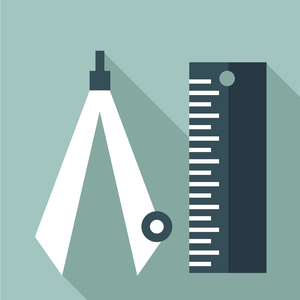How to Calculate IELTS Score (Overall & Each Component)
If you’re confused about how to calculate IELTS scores, that’s completely understandable.
In this lesson, we’ll look at how the overall score is determined and how to calculate band scores in IELTS Writing, Listening, Reading and Speaking.

Contents;
- Writing – How to Calculate IELTS Score
- Listening – How to Calculate IELTS Score
- Reading – How to Calculate IELTS Score
- Speaking – How to Calculate IELTS Score
- How to Calculate IELTS Overall Score
- Why Candidates Expect Higher IELTS Scores
Prefer to watch the video version?
Writing – How to Calculate IELTS Score
What are Band Scores
Each band is given a score from 1 to 9.
The first band score is referred to as Task Achievement, and this is based on your ability to answer the question.
The second band score, Coherence and Cohesion, assess the organisation of your writing and how easy it is to follow what you’ve written.
Next is the band score is known as Lexical Resource, and this is the evaluation of your range and accuracy of vocabulary.
Finally, each Task gets a score for Grammatical Range and Accuracy, which is the score for your grammar.
To learn more about each of these band scores, click on the links above.

How to Calculate IELTS Score for Task 1 and Task 2
After the four band scores are decided for your answer, the average becomes your overall score for that task.
So if these are your Task 1 scores;
- Task Achievement – band 8
- Coherence and Cohesion – band 8
- Lexical Resource – band 7
- Grammatical Range and Accuracy – band 7
Those four figures are added together and divided by 4.
(8+8+7+7) ÷ 4
⇒ 30 ÷ 4 = 7.5
So, as you can see, a band score of 7.5 is awarded for this Task 1 answer.

However, if the average isn’t a whole number, like 7.0, or a half number, such as 7.5, it will be rounded down to the nearest half number.
To illustrate, let’s say your Task 2 essay got the band scores;
- Task Achievement – band 7
- Coherence and Cohesion – band 7
- Lexical Resource – band 7
- Grammatical Range and Accuracy – band 6
Again, we add these figures and divide them by 4.
(7+7+7+6) ÷ 4
⇒ 26 ÷ 4 = 6.75
However, there is no such score as 6.75, so this will be rounded down to 6.5 as the overall Task 2 score.
Some candidates think this is unfair but, later, the average of both Tasks is rounded up, which means it’s completely reasonable.

How to Calculate Overall Band Score in IELTS Writing
Now that we have our Task 1 score of 7.5 and our Task 2 score of 6.5, these need to be combined to get our overall IELTS Writing score.
However, Task 2 is worth twice as much as Task 1. This is why you are told to spend 40 minutes on Task 2 and 20 minutes on Task 1.
Here is the easiest way to calculate this;
(Task 1 score + Task 2 score + Task 2 score) ÷ 3
So for the example we were looking at previously, this will be;
(7.5 + 6.5 + 6.5) ÷ 3
⇒ 20.5 ÷ 3 = 6.833

To calculate the overall band score in IELTS Writing, 6.833 is rounded up to the nearest half mark to become 7.0.
How to Improve Your Overall Band Score in IELTS Writing
To improve your IELTS Writing score, firstly, complete my Task 2 Lessons, then my lessons for Academic Task 1 or General Training Task 1, depending on which type of IELTS you need.
Once you’ve completed those, subscribe to my free Live Feedback Lessons so that I can explain the specific problems you have in Task 1 and Task 2.
Listening – How to Calculate IELTS Score
How to calculate overall band score in IELTS Listening is very straightforward.
Firstly, all your answers are marked as right or wrong.
Keep in mind that the answer must be exactly the same as the answer key to be marked as correct. This includes the spelling.

After that, all your correct answers are counted up, and the chart below is used to determine your IELTS Listening score.

To improve your listening score, you can learn everything you need to know with my IELTS Listening Lesson.
Reading – How to Calculate IELTS Score
How to calculate IELTS band score in reading is the exact same as in listening.
However, because Academic and General Training IELTS have different reading tests, the required number of correct answers is also different.

To understand how to get the reading score you need, make sure to complete my IELTS Reading Lesson.
Speaking – How to Calculate IELTS Score
How to calculate the band score in IELTS Speaking is similar to Writing in that the IELTS examiner gives you a score in four different bands.
The first band, Fluency and Coherence, is based on your ability to speak without pausing and stay on topic while developing your answers.
The next band is Lexical Resource which is determined by the range and accuracy of your vocabulary.

Next, Grammatical Range and Accuracy is the score you get for grammar.
Then Pronunciation is based on your ability to produce individual sounds, word stress, sentence stress, connected speech and intonation.
For a more detailed understanding of each band score and how to improve in each one, check out my lesson on How The IELTS Speaking Test is Scored.
Once the four scores are decided, the average is rounded down to the nearest half mark.
Let’s look at three examples to clarify this;
Example #1
- Fluency and Coherence – band 7
- Lexical Resource – band 7
- Grammatical Range and Accuracy – band 6
- Pronunciation – band 6
To get the overall score we do the following;
(7 + 7 + 6 + 6) ÷ 4
⇒ 26 ÷ 4 = 6.5

Because the average is a half mark, this doesn’t need to be rounded down, and an overall band score of 6.5 is awarded for this IELTS Speaking Test.
Example #2
- Fluency and Coherence – band 7
- Lexical Resource – band 7
- Grammatical Range and Accuracy – band 6
- Pronunciation – band 5
To get the overall score we do the following;
(7 + 7 + 6 + 5) ÷ 4
⇒ 25 ÷ 4 = 6.25
This time, the average score doesn’t land on a half mark, so 6.25 will be rounded down to 6.0 for the overall band score for this IELTS Speaking Test.
Example #3
- Fluency and Coherence – band 8
- Lexical Resource – band 7
- Grammatical Range and Accuracy – band 6
- Pronunciation – band 6
To get the overall score we do the following;
(8 + 7 + 6 + 6) ÷ 4
⇒ 27 ÷ 4 = 6.75

Once more, the average score needs to be rounded down so a band of 6.5 will be awarded for this IELTS Speaking Test.
How to Improve Your Overall Band Score in IELTS Speaking
If you need to improve your scores, you can complete my IELTS Speaking Lessons and register below for my weekly Live Feedback Lessons for Speaking.
How to Calculate IELTS Overall Score
Once your scores for IELTS Writing, Reading, Listening and Speaking are determined, the average of these four scores are calculated to determine your overall IELTS score.
So, if you got the following scores;
- IELTS Writing – band 6.5
- IELTS Listening – band 7
- IELTS Reading – band 7
- IELTS Speaking – band 7
Your overall score will be calculated as follows;

(6.5 + 7 + 7 + 7) ÷ 4
⇒ 27.5 ÷ 4 = 6.875
This will be rounded up to 7.0 for your overall IELTS band score.
Why Candidates Expect Higher IELTS Scores
The sad truth is that most IELTS candidates are surprised by their scores.
There are two main reasons for this;
- Misconception about English Level
- Misconception about IELTS Test

Misconception about English Level
Many students need to get a band 7, but they don’t fully understand what that means.
They already have a good level of English, and they probably got high scores in their high school and university exams.
However, those exams are not comparing the students’ proficiency to that of a native English speaker, as is the case with the IELTS test.
As you’ll see here, in reality, a band 7 candidate is a very strong user of English.
This is a problem because IELTS certificates don’t display individual band scores such as Lexical Resource or Grammatical Range and Accuracy.

As a result, a candidate who doesn’t have the language ability can fail the IELTS test but still not realise that they need to improve their English.
Misconception about IELTS Test
This can happen to students who have a very high level of proficiency in English.
Because they know that the IELTS test assesses their language ability, they feel that they will get a high score without preparing.
Unfortunately, that’s not the case, and every IELTS candidate needs to understand how to do the test before getting a high score.

